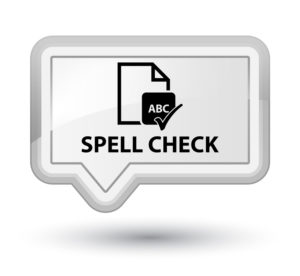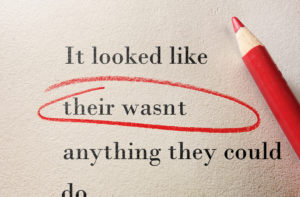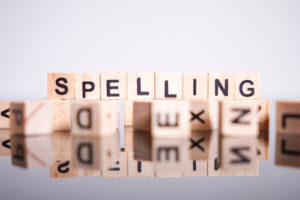Spelling
We’ve all heard the spelling rule before…“I before E except after C.” It’s something that has been ingrained in our heads since we were in grade school, but we also know that this rule doesn’t even begin to apply to all of the IE/EI nuances in the English language. In a tongue-in-cheek blog post, Merriam Webster once tried to add to the rhyme to include all of the different parts of this spelling rule. The results? Something no grade school student (or adult) would ever be able to memorize:
I before e, except after c
Or when sounded as ‘a’ as in ‘neighbor’ and ‘weigh’
Unless the ‘c’ is part of a ‘sh’ sound as in ‘glacier’
Or it appears in comparatives and superlatives like ‘fancier’
And also except when the vowels are sounded as ‘e’ as in ‘seize’
Or ‘i’ as in ‘height’
Or also in ‘-ing’ inflections ending in ‘-e’ as in ‘cueing’
Or in compound words as in ‘albeit’
Or occasionally in technical words with strong etymological links to their parent languages as in ‘cuneiform’
Or in other numerous and random exceptions such as ‘science’, ‘forfeit’, and ‘weird’.
Did you get all of that? Us either.
While it’s great to know we will always have spell check on our sides, it’s also great to be a good speller. Here are a list of 50 of the most commonly misspelled words. You may not have any issues with any of these words, but keeping a list of words you do commonly misspell isn’t a bad idea. Let’s face it–sometimes seeing the dreaded spellcheck underline can get you out of your writing flow before you really had a chance to get started.
- Absence
- Accommodate

- Achieve
- A lot
- Amateur
- Atheist
- Believe
- Benefit
- Buses
- Calendar
- Cemetery
- Changeable
- Colonel
- Conscience
- Daiquiri
- Embarrass
- Exaggerate
- Existence
- Foreign
- Guarantee
- Harass
- its/it’s
- Judgment
- Knowledge
- License
- Loneliness
- Marshmallow
- Mathematics
- Memento
- Millennium
- Misspell
- Noticeable
- Occasion
- Pastime
- Peculiar
- Pigeon
- Prejudice
- Probably

- Publicly
- Queue
- Receive
- Recommend
- Restaurant
- Sacrifice
- Separate
- their/they’re/there
- Until
- Vacuum
- Weird
- Whether/weather
 Another way to become a better at spelling? Read. The more you read, the more your vocabulary improves. You can also take up crossword puzzles, subscribe to word-of-the-day emails, and become familiar with common rules for prefixes and suffixes. If you want to be taken seriously as a writer, you need to be able to spell. Putting a little time and effort into developing this skill will only help you earn more respect in your field.
Another way to become a better at spelling? Read. The more you read, the more your vocabulary improves. You can also take up crossword puzzles, subscribe to word-of-the-day emails, and become familiar with common rules for prefixes and suffixes. If you want to be taken seriously as a writer, you need to be able to spell. Putting a little time and effort into developing this skill will only help you earn more respect in your field.
